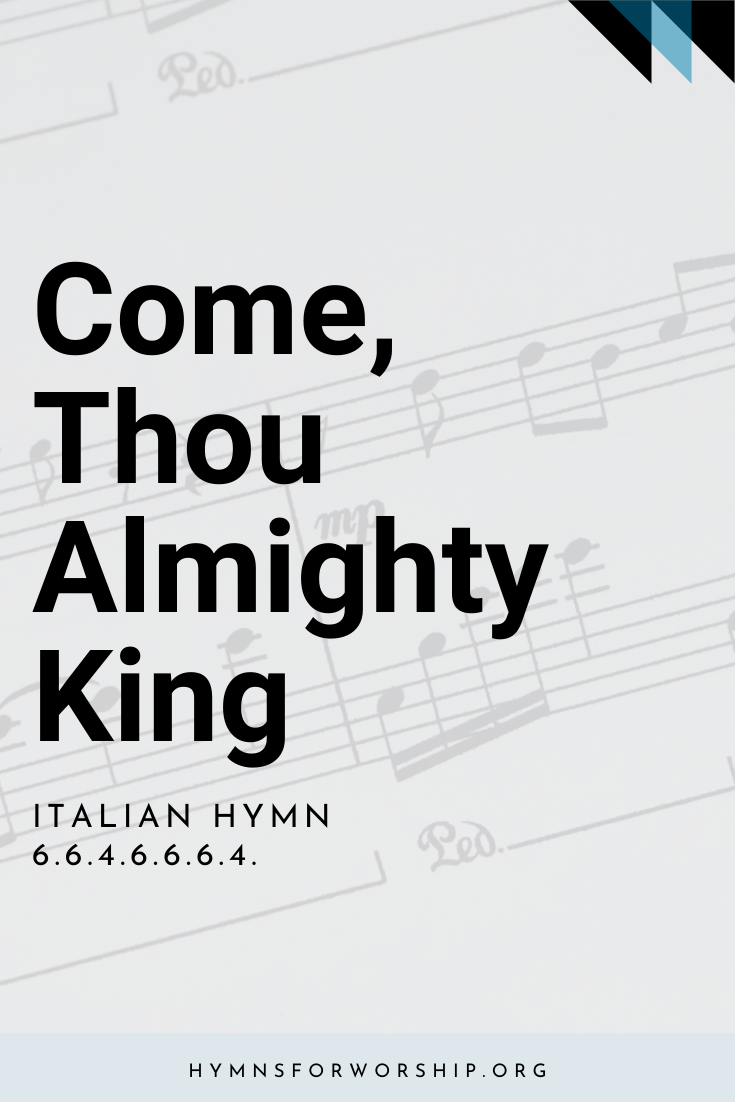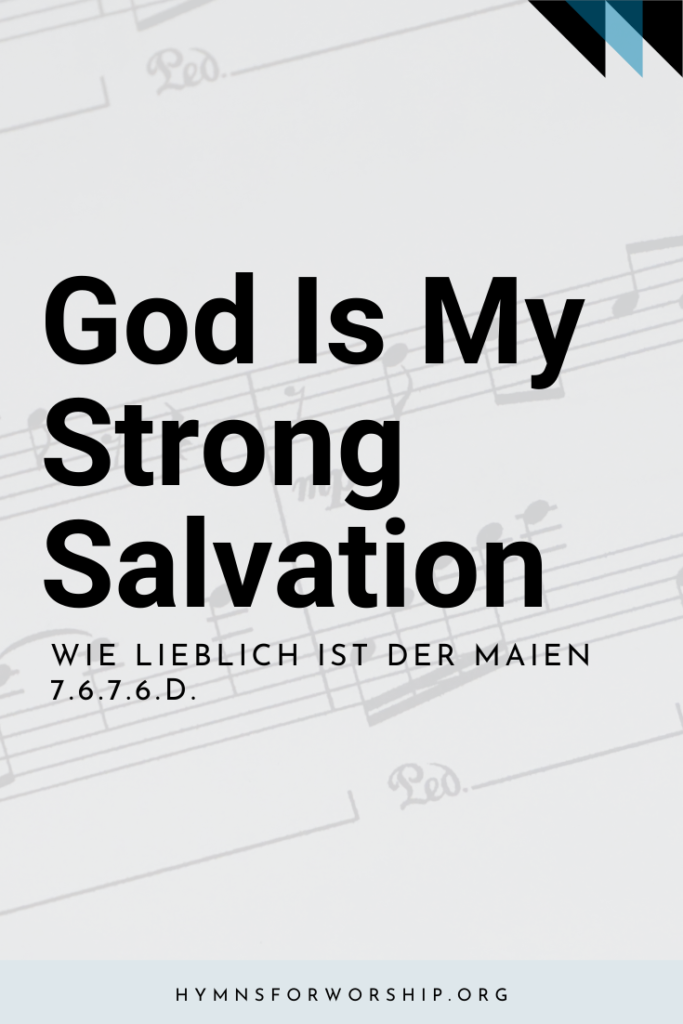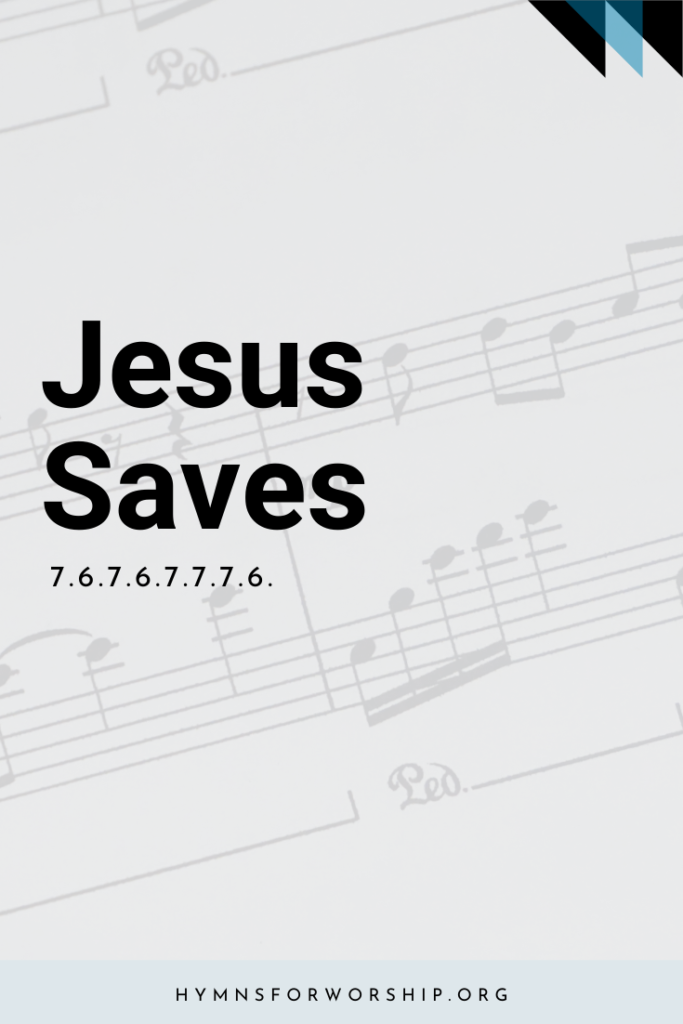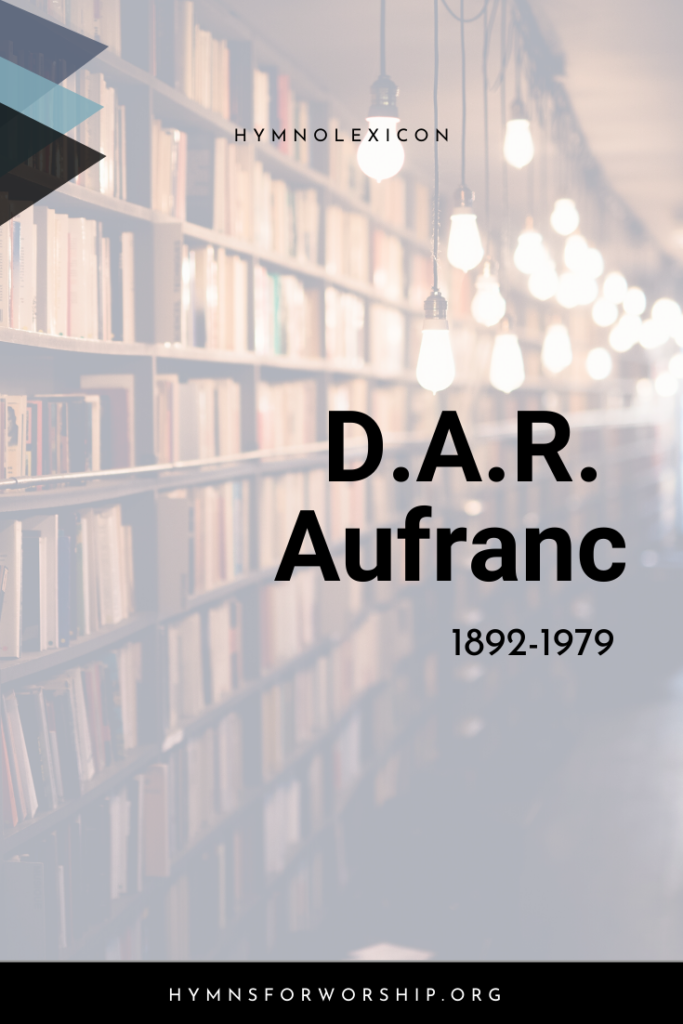TRINITY
SDAH 71
Come, Thou almighty King,
Help us Thy name to sing,
Help us to praise!
Father all glorious,
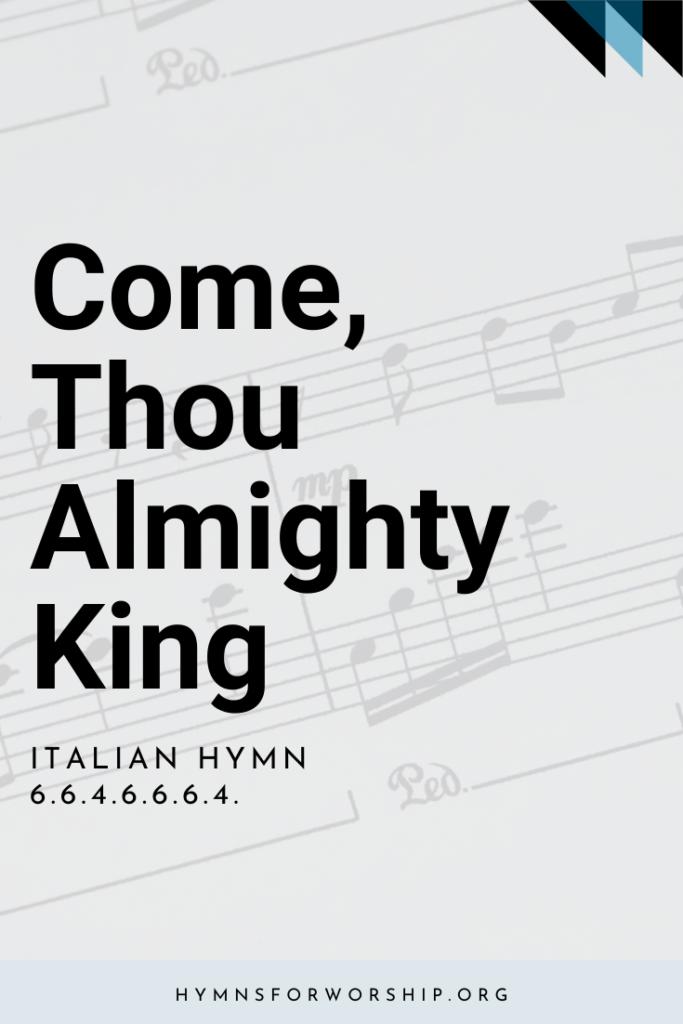
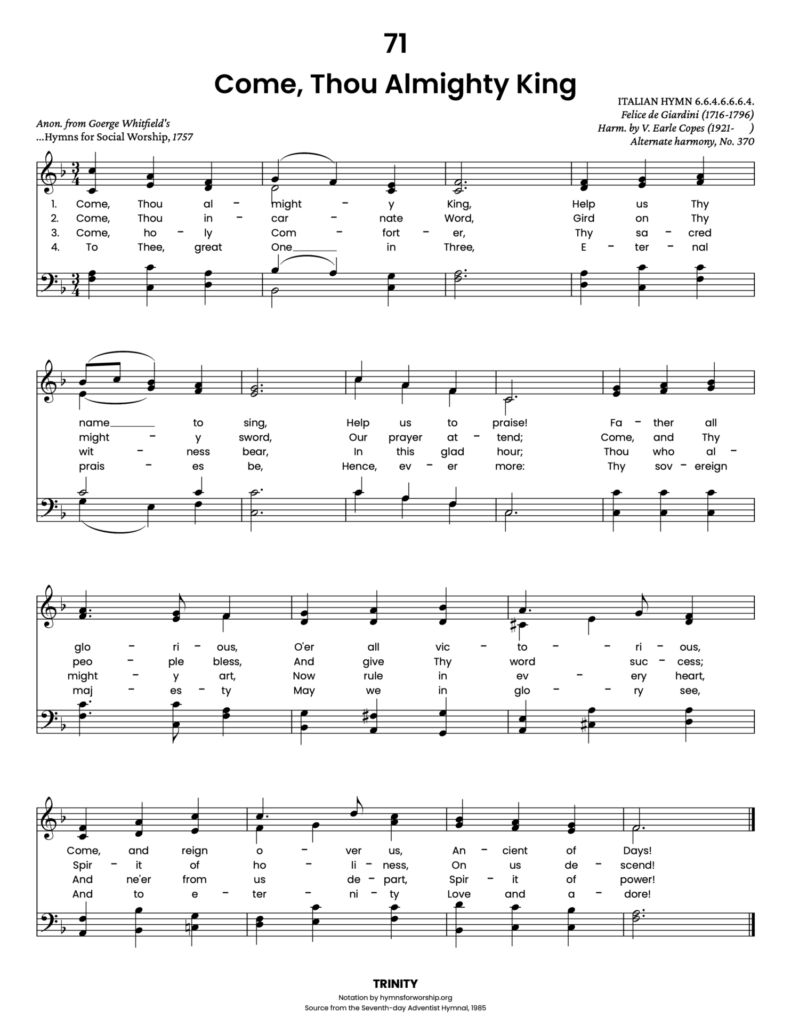
Get the hymn sheet in other keys here
For Worship Leaders
Make each hymn more meaningful with these helpful tools: Short, ready-to-use hymn introductions for church bulletins, multiple ways to introduce a hymn based on your worship theme and in-depth history and insights to enrich your song service.
Hymn Spotlight: Come, Thou Almighty King
The author of this beloved Trinitarian hymn remains unknown, though it was first published in 1757 alongside a hymn by Charles Wesley. Each stanza calls upon a different Person of the Godhead—Father, Son, and Holy Spirit—before concluding with a declaration of praise to the “One in Three.” Its strong and prayerful text has made it a cherished opening hymn for worship.
Felice de Giardini (1716–1796) composed the majestic tune, ITALIAN HYMN, at the request of Selina, Countess of Huntingdon. A noted violinist and composer, Giardini spent much of his career in London before his final years in Moscow, where he passed away. His melody, also known as MOSCOW, beautifully supports the hymn’s theme of divine majesty and unity.
As we sing, may our voices rise in adoration to the Father, Son, and Holy Spirit, the King of glory and grace!


Text
1
Come, Thou almighty King,
Help us Thy name to sing,
Help us to praise!
Father all glorious,
O’er all victorious,
Come, and reign over us,
Ancient of Days!
2
Come, Thou incarnate Word,
Gird on Thy mighty sword,
Our prayer attend;
Come, and Thy people bless,
And give Thy Word success;
Spirit of holiness,
On us descend!
3
Come, holy Comforter,
Thy sacred witness bear,
In this glad hour:
Thou who almighty art,
Now rule in every heart,
And ne’er from us depart,
Spirit of power!
4
To Thee, great One in Three,
Eternal praises be,
Hence, evermore:
Thy sovereign majesty
May we in glory see,
And to eternity
Love and adore!

Hymn Info
Biblical Reference
(a) Dan 7:22 (b) John 14:16 (c) Matt 6:10
Text Source
Anonymous from George Whitfield’s Hymns for Social Worship
Year Published
1757
Copyright
Arrangement copyright 1964 by Abingdon Press. Used by permission.
Hymn Tune
ITALIAN HYMN
Metrical Number
6.6.4.6.6.6.4.
Composer
Felice de Giardini (1716-1796)
Harmonized
V. Earle Copes (1921-2014)
Alternate Harmony
SDAH 370
Theme
TRINITY

